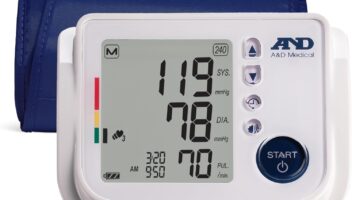Understanding Panic Attacks and Anxiety Attacks
Are you feeling overwhelmed, breathless, or on the verge of losing control? You might be wondering if it’s a panic attack or an anxiety attack. The terms are often used interchangeably, but they’re not quite the same. Today, let’s break down the differences between these two distressing experiences, share some personal anecdotes, and explore the power of online therapy for managing these challenges.
Defining Panic Attacks and Anxiety Attacks
Panic and anxiety attacks can feel similar, but understanding their nuances is essential for effective coping.
Panic Attack:
- Comes on suddenly, often without warning
- Typically peaks within minutes
- Symptoms can include heart palpitations, sweating, trembling, or even a feeling of impending doom
- Often involves a feeling of losing control or a worry about going crazy
Anxiety Attack:
- Builds gradually over time
- Can last for an extended period, sometimes hours or even days
- Symptoms may include excessive worrying, restlessness, difficulty concentrating, and muscle tension
- Usually tied to specific stressors or situations
I remember my first panic attack vividly. I was at a crowded concert, surrounded by thousands of people, when suddenly, my heart started racing uncontrollably. My vision blurred, and I thought I was going to faint. It felt like the world was closing in on me. I had no idea what was happening but it was terrifying.
In contrast, my anxiety attacks would creep up on me when I was stressed about upcoming deadlines at work. I’d feel a knot in my stomach that wouldn’t go away for days, and I found myself constantly replaying scenarios in my head. The feelings were just as intense but different in the way they manifested.
Why Identification Matters
Understanding whether you’re experiencing a panic attack or an anxiety attack can significantly influence how you manage your feelings. Identifying the type of attack can help you or a therapist develop tailored coping strategies.
For instance:
- If you know it’s a panic attack, grounding techniques like focused breathing or visualizing a safe space may help.
- If your struggles are more aligned with anxious feelings, cognitive-behavioral strategies could be more beneficial.
The next time you’re in the midst of these feelings, reflect on what you’re experiencing. This self-awareness can empower you to tackle the situation head-on.
Coping Strategies That Work
You don’t have to navigate these challenges alone! Here are some effective strategies to consider:
-
Deep Breathing: Take deep, slow breaths, focusing on inhaling through your nose and exhaling through your mouth. Counting to four for each breath can make it more manageable.
-
Grounding Techniques: Focus on your surroundings; what can you see, touch, or hear? This method can help pull you away from spiraling thoughts.
-
Mindfulness Practices: Engaging in mindfulness exercises can help you stay present and lower anxiety levels over time.
- Physical Activity: Whether it’s a brisk walk or a yoga class, moving your body can act as a natural stress reliever.
These coping strategies can be incredibly effective, but pairing them with professional support can amplify their benefits.
Embracing Online Therapy
Online therapy has emerged as a powerful tool for those struggling with anxiety and panic attacks. The benefits are numerous:
-
Convenience: Access therapy sessions from the comfort of home, fitting them into even the busiest lifestyles.
-
Anonymity: Many find the online format less intimidating than in-person sessions, allowing for open communication.
- Tailored Approaches: You can seek out therapists who specialize in anxiety or panic disorders to find the best fit for your needs.
I’ve personally experienced how online therapy can shift your perspective. Connecting with a therapist online allowed me to discuss my feelings openly, all while sitting in my favorite comfy chair with a warm cup of tea. It made the experience feel safe and accessible.
If you’re ready to take the next step towards feeling better, consider starting your journey with online therapy. Check out this link for panic attack treatment options that might work for you: Explore Online Therapy.
Conclusion Thoughts
Recognizing the difference between panic attacks and anxiety attacks is a significant step toward managing your emotional health. By identifying and understanding your experiences, you can develop strategies that resonate with your needs. Don’t hesitate to reach out for professional support. Online therapy offers a modern approach that can fit into your life seamlessly.
You are not alone in this journey. Many have walked the path you’re on and emerged on the other side, equipped with tools and resilience. Start taking small steps today—because a brighter tomorrow is always within your reach. 💪✨
Disclosure:
Hospitals.net is a participant in the Amazon Services LLC Associates Program, an affiliate advertising program designed to provide a means for sites to earn advertising fees by advertising and linking to Amazon.com, .ca, .co.uk, etc.
AI Disclaimer:
Hospitals.net uses artificial intelligence (AI) tools to assist in gathering and summarizing product information, including reviews and other relevant data for Amazon products and services. While we strive to ensure the accuracy of the information provided, AI-generated content may not always reflect the most up-to-date or accurate details. The information on our site should not be considered professional advice, and users are encouraged to verify any product details directly with Amazon or other official sources before making a purchase.
We do not guarantee the completeness or accuracy of the AI-generated content and are not liable for any discrepancies or errors. Any reliance on the information provided is at the user’s own risk. By using this site, you acknowledge that product availability, pricing, and other details may change over time, and Hospitals.net is not responsible for these changes.
Health Disclaimer:
The health products and information provided on Hospitals.net are for informational purposes only and are not intended to substitute professional medical advice, diagnosis, or treatment. Always consult a qualified healthcare provider or medical professional before using any health products or following any advice you find on this site. The content on Hospitals.net, including product recommendations and reviews, is not a substitute for individualized care from a healthcare provider.
We make no warranties or representations regarding the effectiveness, quality, or safety of the products listed on our site. Any use of these products is solely at your own risk. Hospitals.net is not liable for any harm, injury, or adverse effects that may result from the use or misuse of the health products or information provided.
Please read all product labels, warnings, and directions provided by the manufacturer before using any product. If you have any questions about a product or its suitability for your condition, we recommend contacting the manufacturer directly or consulting a healthcare professional.
If you have any concerns regarding the accuracy of the information on this site, please contact us for further clarification.



